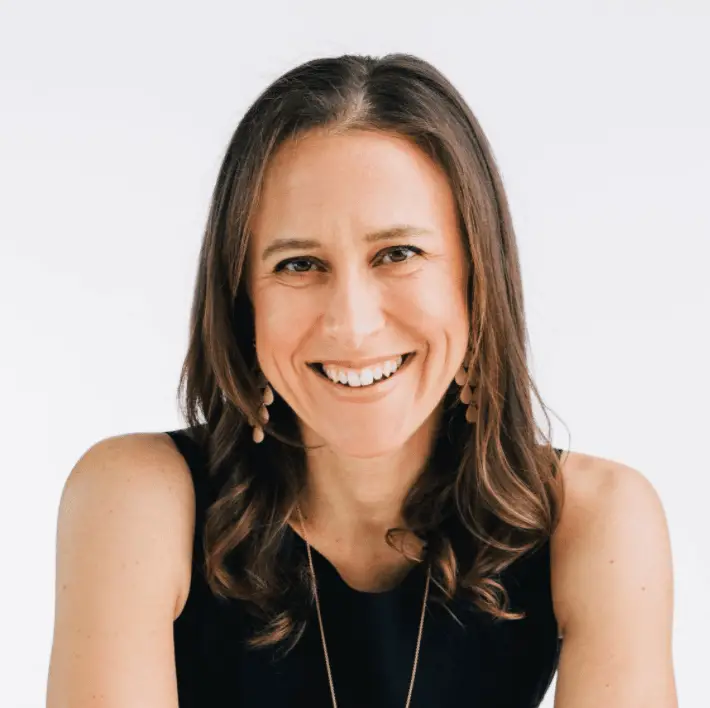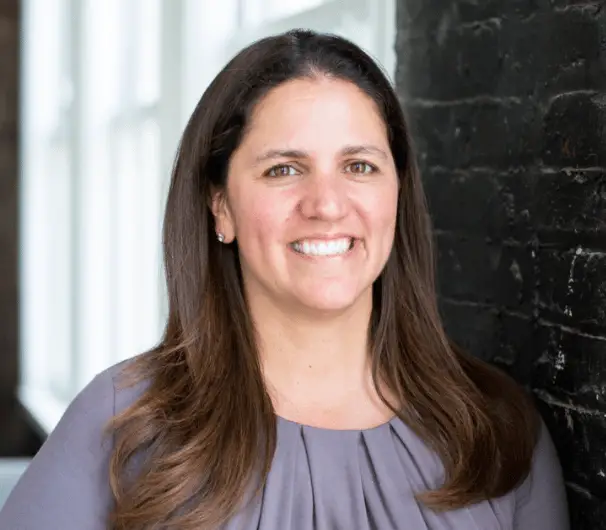Business ownership among women is growing quickly. American Express’s State of Women-Owned Businesses Report from 2017, shows explosive growth in numbers of women entrepreneurs over the last decade. From 1997 to 2017, there was a 114 percent rise in women-owned companies. According to their studies from 2019, women in business contribute to “42% of all businesses—nearly 13 million—employing 9.4 million workers and generating revenue of $1.9 trillion.”
While these are positive signs, the number of women in major leadership roles lacks in comparison to men. Researchers from the 2018-2019 Women’s Report from The Global Entrepreneurship Monitor (GEM) found that Total Entrepreneurial Activity (TEA) among women was only 10.2 percent.
Nevertheless, women entrepreneurs across the world are guiding their companies to massive success. Leaders like Sara Blakely, have proven that women in business have their place founding and leading companies. In this article, discover the top 10 women business leaders dominating their markets. These “Women to Watch in 2020” provide inspiration and insight into what it takes to build a successful startup. Learn more about how they’re innovating their industries and acting as leaders within their organizations.
Women Entrepreneurs Who Are Changing the Business Landscape
Anne Wojcicki

Company: 23andMe
Title: Co-founder and CEO
About:
In 2006, Anne Wojcicki co-founded 23andMe®, a direct-to-consumer DNA testing company. By submitting saliva samples, customers quickly receive insight into their genetic code. Services provided include results for ancestry and health traits. For example, through 23andMe a person can find out if they are genetically predisposed to type 2 diabetes or at risk of getting breast cancer. But that’s not all of the information people can find out about themselves. In total, the company can test up to 150+ individualized traits for a complete DNA overview.
Wojcicki is one of the most innovative women entrepreneurs in the biotech industry. A successful businesswoman, she serves as a revolutionary force in making important healthcare testing accessible and affordable to all. In an article for Fast Company, Wojcicki’s mission is described as two-fold: “bringing the power of genetic testing to everyday consumers so they can better manage their own health care, and using the aggregated data from those tests to help doctors, scientists, hospitals, and researchers discover new cures for diseases.”
23andMe has the backing of major investors such as Johnson & Johnson and Google Ventures. In 2018, the company landed a $300 million dollar investment from GlaxoSmithKline. Currently, the business is valued at $2.5 billion.
Arum Kang

Company: Coffee Meets Bagel
Title: Co-founder and CEO
About:
Arum Kang is a female founder who came up with the idea for Coffee Meets Bagel while in business school at Harvard. With the help of her two sisters, Kang launched the successful online dating service in 2012. By addressing concerns over consent, privacy, safety, and presenting meaningful connections, Coffee Meets Bagel fulfills a need within the market.
Kang and her sisters rose to infamy in 2015 for turning down Mark Cuban’s offer on Shark Tank to purchase the company for $30 million dollars. After the show, Kang received backlash for her decision but remained resilient. She wholeheartedly believed her company was worth more in terms of serving users and ultimately reaching the same level as Match.com. Thus far, these women in business have raised over $23.2 million dollars. Today, PitchBook values Kang’s company at $82 million dollars.
In terms of leadership, Kang demonstrates important lessons in knowing who you serve and playing an infinite game. By seriously considering the concerns of women, Kang’s ambitious idea turned into a serious rival among top dating apps. In an interview with GeekWire, she explains, “We’re looking at a 100-year horizon here, I’m not here to build a five, ten-year company.”
Katie Ann Echevarria Rosen Kitchens

Company: FabFitFun
Title: Co-founder and Editor in Chief
About:
Katie Ann Echevarria Rosen Kitchens started membership box FabFitFun as an online magazine. Her goal was to change how women consume information about health and wellness. Traditionally, women’s magazines are instructional and set unattainable beauty standards. In contrast, she shifted the conversation to be multi-dimensional and focused on self-care. Eventually, as the site grew, Echevarria Rosen Kitchens changed course to begin bringing featured products directly to consumers.
Furthermore, as a successful Latinx business owner and female founder, she places a heavy focus on ensuring FabFitFun represents Latina women entrepreneurs and creators like herself. For example, the company has partnered with Eva Longoria and participated at the #WeAllGrow Summit. “I am a big believer that you need to see it to do it. There are so many amazing, talented, smart Latinas with big dreams and ambitions. I would be doing a disservice to myself and future generations not to if I didn’t use my platform to inspire others,” she tells Hola! in an interview.
In 2019, the company hit one million subscribers, and PitchBook estimated the company’s value at $930 million dollars.
Melanie Perkins

Company: Canva
Title: CEO and Co-founder
About:
In 2012, the successful businesswoman Melanie Perkins and two of her business partners released Canva, a graphic design platform. The company’s core vision is to provide a space where anyone can create digital designs for marketing, presentations, invitations, social media, and more. Since opening its doors, the business has seen tremendous success as an accessible design tool. As of 2019, the company boasts over 15 million monthly users across the world.
The most impressive thing about the female entrepreneur is how she guides her company. The company’s mission statement is: “Being a force for good.” In 2015, the business announced that registered non-profits could use the premium version of Canva, free of charge. In an interview for Forbes, Perkins tells Kathy Caprino the company provides services for “25,000+ not for profit organizations around the world” now.
According to Business Insider Australia, as of 2019, Canva is valued at $4.7 billion dollars, securing $125 million dollars in its last round of funding. And the company shows no signs of slowing down. Perkins tells TechCrunch, “We’ll be using this new funding to further cement Canva as the default tool in every workplace.”
Cathryn Lavery

Company: BestSelf Co.
Title: Co-founder and CEO
About:
Cathryn Lavery and Allen Brouwer launched BestSelf Co. and their best-selling productivity planner, the SELF Journal, in 2015. Within 24 hours, the duo raised $12,500 dollars for their idea on Kickstarter. In total, their campaign raised over $355,000 dollars—nearly 24 times the amount they listed as needed for their startup.
In an interview for Entrepreneur.com, Lavery says her dedication to the process of self-improvement is one of her key leadership strategies. For example, she tells reporter Nina Zipkin, “It’s that marginal 1 percent improvement. If you improve 1 percent a day, you’ll be three times better in a year. You want to get that quick win, the instant gratification, whereas the things that will actually help you move forward are the things that compound on each other [over time].”
Her company reflects this particular core value—taking self-improvement into your own hands and making it a part of your daily routine. BestSelf Co. resonates with those looking for a great tool for improving themselves day by day, in addition to increasing productivity levels. By doing this, Lavery explains, you develop more opportunities for yourself and those around you.
Jasmine Crowe

Company: Goodr
Title: Founder and CEO
About:
Jasmine Crowe, founder of food waste management platform, Goodr, is a prime example of a servant leader. Before starting her business, Crowe served her community by creatively resourcing food and providing two free meals per week to those in need. As a result, she tells Microsoft she realized, “The idea that hunger is an issue of scarcity and we need to produce more food is false.” During the research stage of her company, she found that billions of dollars and pounds of food get wasted in the United States alone. Furthermore, with this information, she realized hunger could be solved through logistics.
This female entrepreneur’s mission is simple: feed more, waste less. Seeking to make a large-scale change in her community, she developed a mobile app similar to UberEats that connects businesses with a surplus of food to delivery drivers. More importantly, Goodr created a way for the otherwise wasted food to benefit local nonprofits. In addition to feeding those in need, companies can serve the community, reduce carbon footprint, and increase their bottom line through charitable donations.
Crowe says her ultimate goal is to develop Goodr into a global organization that feeds people across the world. In three years, the company’s raised 1.1 million dollars in funding.
Sarah Leary

Company: Nextdoor, Inc.
Title: Co-founder and Vice President of Marketing and Operations
About:
In 2011, Sarah Leary and her business partners officially launched their community-driven social networking service, Nextdoor. Leary came up with this business idea after realizing the disconnect felt in modern neighborhoods. In essence, her goal was to provide a secure forum where neighbors could connect to current news and neighborhood information, local businesses, and public agencies.
With a long history in Silicon Valley’s tech industry, Leary explains to The Today Show she was often the only woman in the room. Although she felt supported by colleagues and those within her industry, she said it sometimes led her to question whether or not she belonged there.
As one of the most up-and-coming women entrepreneurs today, she feels it’s important to set an example for those around her. For instance, rather than running the company from a corner office, Leary literally works side-by-side with her team. Taking her own experiences into account, she knows the importance of being present as a leader. “If you can see it, you can be it. If you can see someone who’s already blazed the trail, you have a little more confidence that you can do it,” she tells Today.
As of 2020, the company is growing rapidly, securing over $450 million dollars in funding and providing service to 11 different countries.
Suzy Batiz

Company: Poo-Pourri
Title: Founder and CEO
About:
Before starting Poo-Pourri in 2007, Suzy Batiz failed at multiple business endeavors and survived two bankruptcies. However, in less than 10 years, CNBC reports the toilet spray company sold more than 60 million bottles. Batiz invested $25,000 dollars of her own money into starting the business. Since then, she has not sought funding from outside investors. Furthermore, although there have been multiple offers to buy the company, she’s turned down millions each time.
Batiz is a leader who believes chiefly in the power of connecting spirituality and divine inspiration to business. This reflects in the work environment she creates. “In addition to offering a massage room to employees, supplying healthy snacks from Whole Foods, and bringing in a feng shui guru to furnish its Texas headquarters, Poo-Pourri’s bathrooms are decked out with live plant walls and, unsurprisingly, its signature toilet sprays,” writes Dan Whateley for Inc.com. On the company website, the business boasts a creative, “work hard, play hard” culture led by 78% female executives.
In 2019, Batiz was named the 77th richest self-made woman in America by Forbes. During the same year, she was listed as one of the top “35 World-Changing Women in Conscious Business” and received Earthx2019’s “Community Leader of the Year” award.
Emily Weiss

Company: Glossier
Title: Founder and CEO
About:
Before launching Glossier with four staple products in 2014, 11 out of 12 investors turned down Emily Weiss’s investment request for $1 million dollars. Five years later, the blog turned best-selling beauty company confirmed Series D funding for over $100 million dollars.
One of the most important contributing factors in Weiss’s success as a leader is her focus on making customers “stakeholders” in the business. “Thanks to this direct relationship with our customers, we have access to endless inspiration for new products, experiences, and ways of building an enduring business—all while staying true to our core belief that beauty should be a celebration of individuality and personal choice,” she explains in a press release.
Glossier’s company strategy puts its audience front and center—letting them inform and guide the organization. For example, from customer feedback to content creation, the business provides a platform for sharing the experiences of those who purchase their products. Weiss’s genius as a leader is her focus on giving customers a voice. In doing this, she’s created a deep sense of community and purpose within her company.
Georgina Gooley

Company: Billie
Title: Co-founder
About:
Georgina Gooley’s and Jason Bravman’s clean beauty company, Billie, opened its doors in late 2017. Gooley describes Billie’s beginnings as a ‘female-first shave and body brand’. The company opened strong, disrupting outdated practices within the grooming market. They also focus on helping women create a “better shelf.” This means using products without harmful chemicals and ingredients. For this reason, they launched a “Clean Cash Calculator,” which helps people find out if their daily products are safe or toxic.
Under Gooley’s leadership, Billie’s Project Body Hair campaign reached viral success in 2018. This is largely due to the company’s advertising which boldly sends a new and different brand message. “By showing and celebrating the fact that women have body hair, we’re hoping to remove the shame around it,” Gooley tells Skincare.com.
As of 2019, Billie has secured $25 million dollars worth of funding, showing a promising future for Gooley and her team.
Positive Signs of Progress
The people listed above are only a few examples of successful women in business who are turning their ideas into organizations that positively impact the world around them. For instance, the U.S. Census Bureau estimates that between 2007 and 2018, women entrepreneurs rose by 58 percent. Furthermore, during this time, women of color who own businesses grew by 163 percent. In addition to these positive signs of growth, the statistics also show these businesses increased their hires and revenue. Research from American Express found hires grew by 8 percent while revenue climbed by 21 percent between 2014 and 2019. In total, women entrepreneurs collectively made 1.9 trillion dollars during these years. Moreover, this information proves female-led companies are a growing, vital part of the economy. They also serve in inspiring more women to join in pursuing their own dreams.
